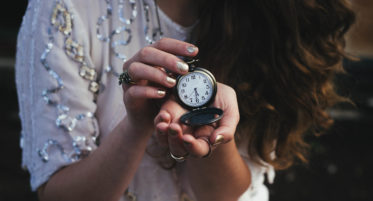
Prompt Images
One of the weirdest job interviews I ever had was at the Boston Veterans Affairs department. As I stepped into the VA elevator, this old guy, possibly a veteran, spilled his Dunkin’ Donuts coffee all over himself and the floor.
“I am a failure,” the guy uttered, as he looked around for paper towels. I felt bad, as if I had done anything to cause this man to spill his coffee or doubt his entire self worth.
“Accidents happen,” I replied, but I was late to my interview already, so I scurried off the elevator, leaving the poor guy to clean up his disaster. I wish I could have helped that guy, but c’est la vie.
Strangely, I ended up getting that job. It was as a research assistant (RA) at a magnetic resonance imaging (MRI) laboratory affiliated with Harvard Medical School. The goal of our research was to figure out what happens in one’s brain when they get drunk.
One of the main parts of my RA job was to make alcoholic drinks … in the name of science.
It’s cool that I acquired bartending experience in the lab, though I never used it again. The only actually good part of labtending was that I was not surrounded by skeezy dudes—only cool, friendly people who lent us their time to help science.
You may be wondering how or why the NIH let us do this research. Did Anthony Fauci sign off on this? No, but seriously, there’s an entire section of the NIH called the National Institute on Alcohol Abuse and Alcoholism that wants to learn more about how alcohol affects the brain.
Alcohol can become a problem for many, and especially given the stress of the COVID-19 pandemic, alcoholism rates are soaring. People who deal with alcoholism can’t stop drinking, and many end up losing their relationships, jobs, and entire livelihoods because of it.
Our research found that alcohol significantly affects decision-making in all the ways you might expect, making it hard for your brain to tease apart relevant information from distractions, slowing your reaction time, and so on. That’s why you should not drive drunk; your brain is literally not working in all the ways it normally does to keep you attentive and alert.
When you’re drunk, there’s literally “no filter” to help you make good decisions and prevent you from making bad ones.
A part of your brain called the anterior cingulate cortex (ACC) is involved in many different functions, including decision-making. When you drink, your ACC is forced to work overtime, and it doesn’t work right.
Most of us are familiar with problems like drunk driving or alcohol abuse, but we don’t hear much about other things that can break your brain. As a freelance writer, I learned that your ACC can be forced to work overtime by other things besides alcohol. One day, I had spent hours poring over information for my latest client in the biotech space, and my brain was overflowing with facts about wireless communication for medical devices. (In case you didn’t know, Bluetooth is very complex, perhaps too complex.) The sheer information overload apparently broke my brain.
I decided to take a break to run a quick errand. I wasn’t feeling my best, cognitively, but I thought that I just needed to step away from the Bluetooth blather for a bit. I hopped in the car and headed out, sober and on a full night’s sleep. But something was definitely amiss.
I noticed flashing lights behind me as I pulled into my residence.
My fellow citizens had reported me to law enforcement, thinking I was a drunk driver. I was forced to do a field sobriety test, following the officer’s finger with my eye, doing a counting exercise I don’t remember anymore, and walking in a straight line. I was so stressed about what was happening to me that I actually failed the sobriety test. Me, a former alcohol researcher, who knows why it’s bad to drink and drive. Me, who only drives sober.
Learning Bluetooth facts had decimated my brain function. Who knew that was even possible? I certainly did not. Oops?!?!?!
Everything was okay in the end, that day, but dealing with law enforcement for an information overloaded brain was not how I wanted to spend my evening.
So, I never let myself drive with too much on my mind since then.
When your brain is too overloaded from COVID-19 news, freelance deadlines that force you to squeeze 131,231,293,528,023 different facts into your brain that inevitably start leaking out, and your life generally becoming an apocalyptic hellscape … maybe it’s time to put down the keys and watch the Kardashians, even if you are 100 percent sober. I doubt anyone has researched this in great detail (and please don’t volunteer me to be the person that is tasked with giving you information overload before putting you into the MRI), but you don’t have to be drunk to destroy your mental filter. Stress and information overload can also break one’s brain.
Take it from me – filters aren’t just for coffee and Instagram. It’s a good idea to be mindful of your brain’s limits.



